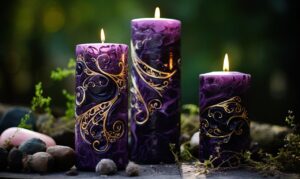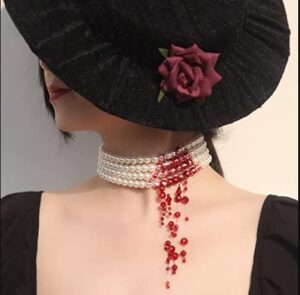Introduction to vampire popularity
Ah, the allure of the undead! As a connoisseur of the macabre, I’ve witnessed firsthand the meteoric rise of vampire popularity in recent decades. From the shadowy corners of gothic literature to the glittering silver screens, these creatures of the night have sunk their fangs deep into our collective consciousness, leaving an indelible mark on popular culture.
In this fang-tastic exploration, we’ll unravel the threads that have woven vampires into the fabric of our modern mythology. Brace yourselves, for we’re about to embark on a journey through the twilight realms of vampire lore, uncovering the secrets behind their enduring appeal and the far-reaching impact they’ve had on various industries.
So, grab your garlic (or perhaps a stake, if you dare), and let’s delve into the captivating world of vampire popularity.
The history of vampires in pop culture
Vampires have stalked the shadows of human imagination for centuries, their origins rooted in ancient folklore and superstitions. From the blood-drinking demons of Eastern European legends to the seductive undead of Victorian gothic novels, these creatures have long captured our fascination with the unknown and the forbidden.
It wasn’t until the late 19th century, however, that vampires truly sank their fangs into the mainstream. Bram Stoker’s seminal novel, “Dracula,” introduced the world to the charismatic Count, a figure that would become the archetype for countless vampire tales to come. This literary masterpiece not only sparked a craze for all things undead but also set the stage for the genre’s evolution across various mediums.
As the 20th century dawned, vampires began to spread their wings, taking flight in the realms of film, television, and even comic books. From the iconic silent film “Nosferatu” to the campy yet beloved “Buffy the Vampire Slayer” series, these bloodsuckers have proven their staying power, adapting to the changing tides of popular culture while retaining their core allure.
The rise of vampire books and literature
While vampires have thrived across various mediums, their true domain has always been the written word. From the brooding, romantic heroes of Anne Rice’s “Vampire Chronicles” to the deliciously dark and twisted tales of Stephen King, authors have breathed new life (or should I say, undeath?) into the vampire mythos.
But it was the arrival of a certain sparkly immortal that truly ignited the vampire literary phenomenon. Stephenie Meyer’s “Twilight” saga swept the world off its feet, captivating millions with its tale of forbidden love between a human and a vampire. This cultural juggernaut not only spawned a blockbuster film franchise but also reignited the world’s obsession with these creatures of the night.
Since then, vampire literature has flourished, with authors exploring the genre’s boundaries and pushing the limits of what it means to be undead. From gritty urban fantasies to genre-bending young adult novels, the vampire book market has become a veritable smorgasbord of bloody delights.
Vampire movies and television shows that shaped the genre
While literature has been the beating heart of vampire popularity, it’s on the silver screen where these creatures truly come to life (or undeath, if you prefer). From the classic horror flicks of the 1920s to the modern-day blockbusters, vampire movies and television shows have left an indelible mark on our collective psyche.
Who could forget the chilling performance of Bela Lugosi in the 1931 classic “Dracula”? Or the deliciously campy yet iconic portrayal of the Count by Christopher Lee in the Hammer Horror films? These early cinematic depictions set the stage for the genre’s evolution, paving the way for the more complex and nuanced portrayals that would follow.
In the realm of television, shows like “True Blood” and “The Vampire Diaries” have taken the vampire mythos to new heights, exploring themes of love, power, and the ever-present struggle between humanity and monstrosity. These small-screen sagas have captivated audiences worldwide, weaving intricate narratives that delve into the depths of the vampire psyche.
And let’s not forget the cultural phenomenon that was the “Twilight” film saga. With its brooding protagonists and heart-pounding romance, these movies ignited a fervor among fans that transcended mere fandom, becoming a global phenomenon that forever altered the landscape of vampire pop culture.
Vampire fashion and aesthetics
 Vampires have always been more than just bloodsucking creatures of the night; they are icons of style and sophistication. From the gothic elegance of Dracula’s cape to the modern-day allure of the “Twilight” protagonists, vampire fashion has left an indelible mark on the world of couture.
Vampires have always been more than just bloodsucking creatures of the night; they are icons of style and sophistication. From the gothic elegance of Dracula’s cape to the modern-day allure of the “Twilight” protagonists, vampire fashion has left an indelible mark on the world of couture.
In the realm of haute couture, designers have drawn inspiration from the dark and seductive allure of vampires, crafting collections that evoke a sense of mystery and danger. From flowing capes and corsets to sleek, form-fitting silhouettes, vampire-inspired fashion has become a staple on the runways and in the wardrobes of the fashion-forward.
But it’s not just clothing that has been influenced by these undead trendsetters. Vampire aesthetics have permeated various aspects of popular culture, from hairstyles and makeup to home decor and even automotive design. The brooding, gothic charm of vampires has become a sought-after aesthetic, inspiring countless individuals to embrace their inner creatures of the night.
Vampire fan communities and conventions
Where there are passionate fans, there are dedicated communities – and the world of vampire fandom is no exception. From online forums and fan fiction hubs to real-world conventions and gatherings, vampire enthusiasts have carved out their own unique niche within the broader realm of pop culture.
These communities serve as havens for like-minded individuals, where they can share their love for all things undead, discuss their favorite vampire tales, and even cosplay as their beloved characters. Conventions like the annual “Vampire Ball” and “Endless Night” have become must-attend events for fans, offering a chance to immerse themselves in the world of vampires and connect with fellow enthusiasts.
But these communities are more than just a gathering of fans; they are also a driving force behind the continued success of the vampire genre. Through their unwavering support and dedication, they have helped to shape the narratives and aesthetics that define the vampire experience, ensuring that these creatures of the night remain relevant and beloved for generations to come.
The impact of vampire popularity on other industries
The influence of vampire popularity extends far beyond the realms of literature, film, and fashion. Like a contagious virus, the allure of these undead creatures has permeated various industries, leaving an indelible mark on everything from tourism to gaming. 
In the world of travel and tourism, destinations with a rich vampire history or associations have seen a surge in popularity. From the infamous Bran Castle in Romania (rumored to be the inspiration for Dracula’s lair) to the vampire-themed tours and events in New Orleans, these destinations have capitalized on the public’s fascination with the undead, offering unique and immersive experiences for thrill-seekers and vampire enthusiasts alike.
The gaming industry, too, has embraced the vampire craze, with countless video games, role-playing games, and even online virtual worlds centered around these creatures of the night. From the classic “Castlevania” series to the immersive “World of Darkness” universe, gamers have been given the opportunity to step into the shoes of vampires, exploring their powers and navigating the intricate politics of the undead world.
Even the culinary world has felt the bite of vampire popularity, with themed restaurants, cocktails, and even confections inspired by these blood-craving creatures. From the “Vampire Cafe” in Tokyo to the “Bloody Mary” cocktail, the influence of vampires has left its mark on our gastronomic experiences, adding a touch of the macabre to our dining and drinking adventures.
Exploring the vampire niche market
As vampire popularity has soared, a thriving niche market has emerged, catering to the desires and interests of the most dedicated fans. From specialized merchandise and collectibles to immersive experiences and even vampire-themed vacations, this niche market has become a lucrative and ever-expanding industry.
For the true vampire enthusiast, the options are virtually endless. Collectors can indulge in a vast array of vampire-themed memorabilia, ranging from rare editions of classic novels to intricately crafted figurines and artwork. Online marketplaces and specialty stores have become treasure troves for these coveted items, allowing fans to curate their own personal collections of undead treasures.
But it’s not just physical goods that drive this niche market; experiences and events have also become a major draw. From vampire-themed escape rooms and haunted house attractions to immersive role-playing events and even vampire-inspired cruises, the opportunities for fans to fully immerse themselves in the world of the undead are truly limitless.
Vampire myths and legends around the world
While the modern depiction of vampires has been heavily influenced by Western literature and pop culture, the origins of these creatures can be traced back to various myths and legends from around the globe. Each culture has its own unique interpretation of the vampire, reflecting its beliefs, superstitions, and folklore.
In Eastern Europe, for instance, the vampire is often portrayed as a reanimated corpse that feeds on the living, with various rituals and practices employed to ward off these undead entities. From burying the dead with stakes through their hearts to scattering seeds or grains around their graves, these traditions have become woven into the fabric of local folklore.
In Asia, the concept of the vampire takes on a different form, with creatures like the “jiang shi” of Chinese mythology or the “penanggalan” of Malay folklore. These beings are often depicted as reanimated corpses or disembodied heads that prey on the living, reflecting the region’s rich cultural tapestry and belief systems.
Even in the Americas, tales of blood-drinking creatures have existed for centuries, with indigenous cultures like the Aztecs and Mayans having their own versions of vampire-like entities. From the “cihuateteo” (female spirits who craved human blood) to the “tlaciques” (bloodsucking witches), these legends have added depth and diversity to the global vampire mythos.

Conclusion: The enduring appeal of vampires
As we reach the end of our fang-tastic journey, one thing becomes abundantly clear: the allure of vampires is far from waning. These creatures of the night have sunk their fangs deep into our collective consciousness, captivating us with their seductive charm, their eternal struggle between humanity and monstrosity, and their embodiment of our deepest desires and fears.
But what is it about vampires that has kept us so enthralled for centuries? Perhaps it’s their representation of the ultimate outsider, forever existing on the fringes of society, that resonates with our own yearning for belonging. Or maybe it’s the notion of immortality, the promise of eternal youth and power, that ignites our innermost fantasies.
Whatever the reason, one thing is certain: the vampire phenomenon is here to stay. As long as we crave tales of the supernatural, the forbidden, and the deliciously dark, these undead creatures will continue to stalk the shadows of our imagination, forever etching their mark on the annals of popular culture.
And for those whose fascination with vampires transcends mere fandom, there are even whispers of arcane rituals and spells to become a vampire that promises to grant the gift of undeath. While the pursuit of such dark magic is fraught with danger and uncertainty, it speaks to the depths of our obsession with these immortal beings.
As the sun sets on our exploration, I implore you to embrace your inner creature of the night. Indulge in the tales, immerse yourself in the aesthetics, and let the allure of the vampire world sink its fangs into your very soul. For in the end, we are all but mere mortals, captivated by the eternal seduction of the undead.
The Article Vampire Popularity – Unveiling the Fang-tastic Rise First Appeared ON
: https://ad4sc.com
The Article Vampire Popularity – Unveiling the Fang-tastic Rise Was Found On https://limitsofstrategy.com



Your exploration of vampire popularity is both intriguing and thought-provoking. It’s fascinating how these creatures have evolved in their representation over centuries, shifting from terrifying figures in folklore to complex characters who can evoke both sympathy and desire. Growing up surrounded by the shadows of Bram Stoker’s “Dracula” and Anne Rice’s richly nuanced vampires, I often found myself captivated not just by their supernatural abilities, but by their profound existential dilemmas and emotional depth.
You’ve captured something essential about these characters that often gets overlooked—their ability to reflect our own fears and desires. It’s interesting how the shift from the monstrous to the more relatable has mirrored changes in society’s values and anxieties. The vampires in Stoker’s time were very much a reflection of Victorian fears about sexuality and the unknown, while Rice’s take opened up a dialogue about identity and the human experience.
You’ve really hit on something fascinating with the evolution of these characters. The way that vampires have shifted from the seemingly straightforward embodiment of repressed Victorian fears to complex, relatable figures speaks volumes about our own societal changes. In Stoker’s time, those monstrous qualities were perhaps easier to digest because they were externalized representations of internal anxieties—whether it was fear of the unknown, colonialism, or sexuality.
You’ve really touched on a fascinating point about the evolution of vampire narratives. It’s true that the transformation from Stoker’s portrayal of vampires to Rice’s reimagining coincides with significant shifts in societal attitudes. Stoker’s vampires embody the anxieties of their time—repression, fear of the “other,” and a strict moral code around sexuality. In a way, they served as warnings against the unknown, the chaotic possibilities of desire that Victorian society was hesitant to confront.
You’ve really hit on a critical aspect of how vampire stories reflect the times they come from. Stoker’s Dracula is so steeped in the repressive atmosphere of the Victorian era that it’s hard not to see the underlying messages about sexuality and cultural anxieties. The fear of the unknown, particularly in the context of sexuality and immigration, makes for a gripping narrative, one that holds a mirror to the societal norms of those days.
You’ve raised some compelling points about the evolution of vampire narratives. It’s interesting to think about how Stoker’s vampires served as both literal and metaphorical representations of societal fears. Their embodiment of repression and the complexities of desire really mirrors the strict moral framework of the Victorian era. Those vampires felt like cautionary tales, warning us about the dangers lurking in the shadows of our own desires and the fears surrounding otherness.
Your exploration of vampire popularity resonates with so many aspects of society today, particularly how they symbolize our fascination with mortality, power, and desire. It’s intriguing to see how vampires have morphed over time, from the terrifying figures in Baudelaire’s poetry to the romanticized versions we see in today’s media.
It’s fascinating how our cultural representations of vampires reflect deeper societal themes, isn’t it? You touched on some critical points that many people overlook. The way vampires have evolved from terrifying figures that once embodied our darkest fears into the more complex, romanticized characters we see now opens up such a rich tapestry of meanings.
Your exploration of vampire lore taps into a fascinating intersection of culture and mythology that resonates deeply with our modern psyche. It’s interesting to consider how vampires have evolved from the more sinister figures found in folklore to the complex, often romanticized characters we’ve encountered in contemporary works like “Twilight” and “Bram Stoker’s Dracula.” This transformation reflects not only a change in storytelling but also societal shifts—perhaps revealing our collective fears and desires.